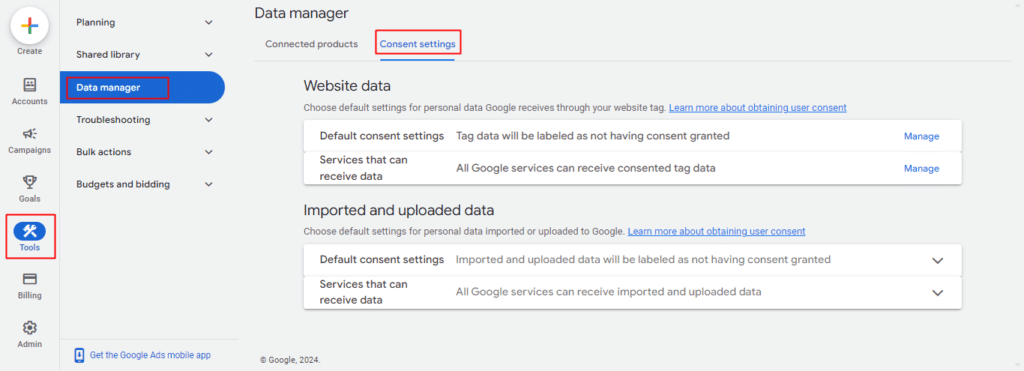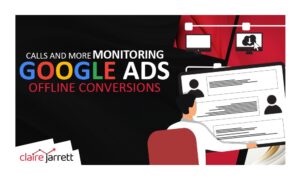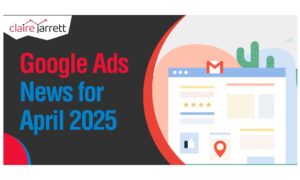Google Ads and Meta Ads News Roundup: August 2024

Last Updated on: 7th November 2024, 07:11 am
Welcome to this month’s PPC ads news roundup, where we dive into the latest from Google Ads, Meta Ads, and LinkedIn Ads!
While LinkedIn Ads hasn’t brought noteworthy news for August, plenty is happening with Google and Meta that’s worth your attention.
I’ll be doubling down on these giants’ updates to ensure your campaigns stay precise.
Let’s take a look!
Google Ads News for August 2024
Google Lets Advertisers Manage Consent Separately for Website and Uploaded Data
Google Ads has been talking about a new data privacy feature that puts more power in your hands. You can now manage consent for website data and imported/uploaded data separately, giving you more control when it comes to user privacy.
This update aligns with Google’s ongoing mission to give users more personal data control while keeping advertisers like us in the loop.
But…weren’t cookies going extinct?
Not really.
Turns out, building a new system that balances privacy and advertising needs isn’t as simple as Google hoped. With technical challenges and regulatory scrutiny slowing things down, Google hit pause. They’re giving the Privacy Sandbox more time to mature before eliminating third-party cookies.
Key Changes with Google Ads Consent Management
There’s a new “Consent settings” tab in the Data Manager section of Google Ads. But…you guessed it: not everyone has access to it yet.
Head over to your Google Ads account and see if you’ve got access to this new feature. If you do, now’s the time to review your consent settings and make sure everything is in line with the latest privacy standards.
Remember, better control equals better campaigns!
Google Ads API Streamlines Conversion Adjustment Uploads
Mark your diaries, as September 9th is bringing improvements to your Google Ads API experience.
What do I mean by that?
Google is removing the 24-hour delay for conversion adjustments, making your data management faster.
Google is also getting rid of error codes related to “too recent” conversions. I’m referring to conversions that happened so quickly after the initial interaction that Google’s system used to flag them as errors when you tried to adjust them.
This has been a real headache because it slowed down our ability to update and optimise campaigns in real time.
Note that Adjustments will be marked as “pending” until they’re fully processed, which can still take up to 24 hours, but you can upload them immediately.
Attention API users! You’ll want to update your applications to remove any logic that enforced waiting periods for adjustments. Essentially, your system might continue to delay adjustments that no longer need to wait, which would keep you from making full use of the faster, real-time data processing that Google now offers.
This update affects API versions v15, v16, and v17, so be sure to check how it might impact your workflows (especially if you rely on metrics like successful or failed event counts.)
Google Extends Deadline for Sunsetting Hotel Ads Commission Bidding
If you’re advertising a hotel, I’ve got good news: Google has announced an extension to the deadline for phasing out commission-based bidding in Hotel Ads campaigns.
On the one hand, commission-based bidding allows you to pay only when a booking is made, which sounds great. But the downside is that this model can lead to unpredictable costs and less control over your ad spend. If the commission rates fluctuate or if your margins are tight, you could end up paying more than you planned, which can throw off your budget and ROAS.
You now have until February 20, 2025, to adjust and keep your campaigns running smoothly. However, you can reconcile any outstanding commissions until November 30, 2025.
How to Prepare for Google Ads News for Hotels in August 2024
Make sure to shift your existing campaigns to new bid strategies before the sunset date:
- Consider moving to CPC (Cost-Per-Click) bidding if you want more control over your budget and the ability to set how much you’re willing to pay for each click.
- Another option is CPA (Cost-Per-Acquisition) bidding, where you set a target cost for each booking or action.
- Target ROAS (Return on Ad Spend) bidding could be a clever move if you’re looking to maximise revenue. They’re advanced strategies and require precise conversion tracking, but when implemented correctly, they can significantly boost your ROAS.
Start planning now!
Meta Ads Updates in August 2024
More Clicks, Lower Costs in Meta Ads
If you’ve been on the fence about Facebook advertising, 2024 might just be the year that sways you. While Google is grappling with antitrust scrutiny and rising ad costs, Facebook remains with its stable pricing and reliable performance metrics.
For advertisers, this means you’ve got a dependable platform that delivers strong ROI without breaking the bank.
The numbers are clear, according to data from Search Engine Land:
- The click-through rate (CTR) for lead campaigns is 2.53%, up from 2.50% in 2023.
- The cost per click (CPC) for lead campaigns is $1.88, down from $1.92.
- The conversion rate for lead campaigns is 8.78%, up from 8.25%.
- The cost per lead is $21.98, down from $23.10.
As you plan your next moves, don’t overlook Facebook’s conversions API, which can help you track offline conversions and potentially increase your overall conversion rates.
Also, don’t rely on Facebook alone for growth: as with any ad approach, Facebook ads work best as part of a broader marketing strategy that includes other social platforms, SEO, and search ads.

Improved Meta Ad Attribution and Targeting Processes
If you want to maximise the value of each dollar or pound you spend on Meta Ads, I’ve got good news!
Meta is rolling out a series of ad optimisation and integration options to improve how they link your ads to conversions.
What does this mean for you?
The new features you should be excited about include the following:
Conversion Value Rules in Meta Ads
One of the most intriguing new features is called Conversion Value Rules. This allows businesses to identify which audiences or conversions are more valuable to them. So that you can determine that, for example, “These customers are worth 20% more to my business, so I’m willing to spend a bit more to reach them.”
Previously, you’d have to create a whole separate campaign to target these high-value customers, but now Meta lets you do it within a single campaign.
By feeding Meta more data on what your business values, you’re helping the system get smarter about who it targets. Less manual tweaking on your end, and more precise targeting from Meta.
Of course, whenever it comes to these automated processes, I recommend testing them with careful scrutiny. If they prove to be profitable for your business, perfect!
However, don’t outsource your marketing and advertising strategy to algorithms – no matter how much data they may have on your audience.
Incremental Conversions in Meta Ads Announced in August 2024
Another significant change is the introduction of an opt-in attribution setting focused on incremental conversions. Instead of just going for sheer volume, this setting zeroes in on conversions that wouldn’t have happened without your ad.
In a recent test, advertisers saw an average of 20% more incremental conversions. The goal is to see how your Meta ads are specifically influencing customer actions.
It’s like having a magnifying glass on the exact moments when your ads made a difference!
CRM Data Integration
Last but not least, Meta is planning to pull data directly from your CRM into its ad system. You’ll be able to strengthen your targeting based on the insights you already have about your customers.
The idea is to give Meta’s ad system a richer understanding of your audience, which could translate to even more effective campaigns.
However, be mindful of the updates related to CRM Data Integration and privacy laws.
Since you’ll be transferring user data from your CRM (to which they opted in) to Meta Ads (to which they may not have opted in, depending on your policy), consider adjusting your privacy policies.
What Are the Google and Meta Ads Updates in August Trying to Tell Us?
This month, we’re seeing clear trends across the major platforms: more control, faster data, and better insights. Google’s doubling down on data privacy and efficiency, Meta’s turning up the dial on precision targeting and attribution, and Facebook is steadily proving to be a reliable ROI generator.
The changes we’re seeing are designed to make our lives easier – but that doesn’t mean they will. As an advertiser, you have full responsibility for your ads’ performance. And even if you “outsource” some of the targeting to each platform’s algorithms, don’t outsource your thinking.
Keep an eye on your strategy and what your audience is telling you. Then – and only then – look at the features and updates platforms provide to double down on what you know works.
What are your thoughts? Maybe we’ll get more definite conclusions for some of the open-ended updates next month, so stay tuned.
In the meantime, why not polish up your skills with my book, Achieve Rapid Google Ads Success in 7 Simple Steps? And if you have any questions or need personalised advice, my team and I are just a message away!




![The Google Ads Specs Cheatsheet [Updated for 2025]](https://a4x3f5i9.delivery.rocketcdn.me/wp-content/uploads/2023/08/google-ads-specs-cheatsheet-300x180.jpg)


